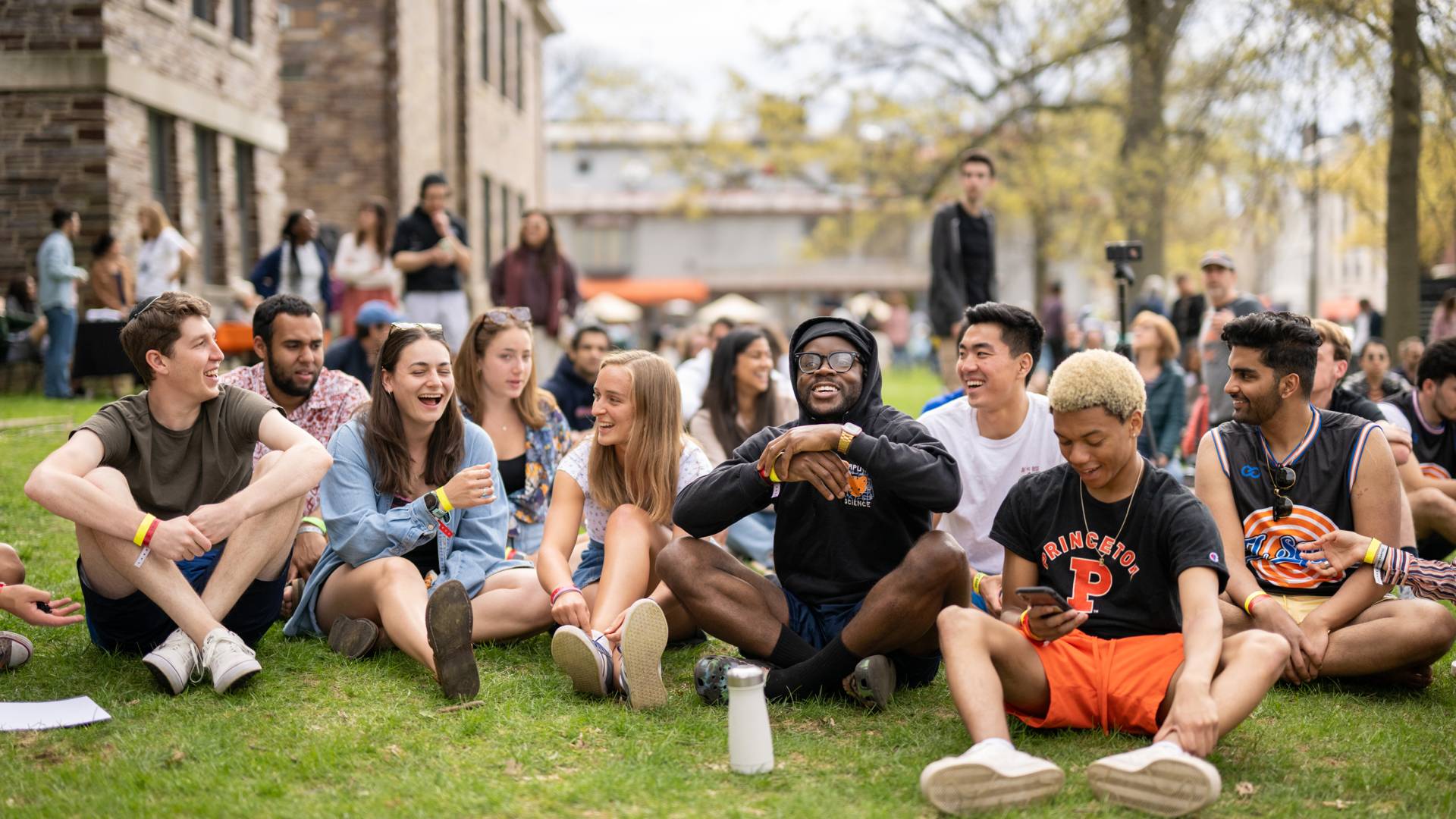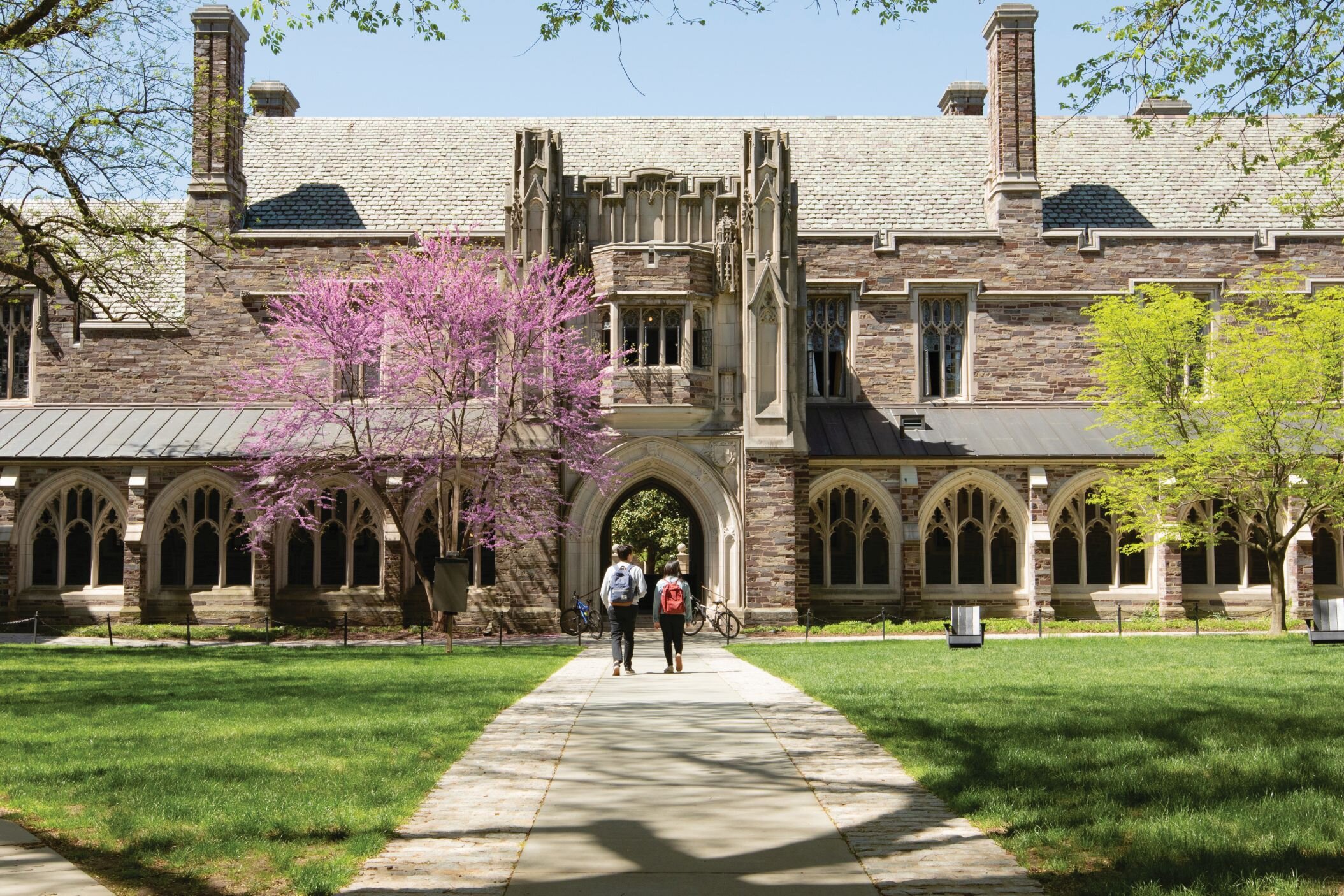Introduction to Princeton University
Princeton University, one of the most prestigious Ivy League institutions, is known worldwide for its rigorous academics, rich history, and beautiful campus. Established in 1746, Princeton has evolved from a small college to a globally recognized leader in higher education. As one of the oldest universities in the United States, Princeton combines tradition with cutting-edge research and innovation. The university is particularly renowned for its emphasis on undergraduate education, world-class faculty, and commitment to the liberal arts.
Location and Campus Layout
Princeton University is located in Princeton, New Jersey, a picturesque town that lies between New York City and Philadelphia. The campus spans over 600 acres and is noted for its Gothic-style architecture, lush gardens, and modern research facilities. Key buildings include Nassau Hall, the oldest building on campus, which dates back to 1756 and now serves as the administrative center. Other notable structures include the Lewis Library, designed by Frank Gehry, and the Princeton University Chapel, an architectural gem that hosts many university events and ceremonies.
Academic Programs and Degrees Offered
Princeton offers a wide array of academic programs, ranging from the liberal arts to the sciences, engineering, and social sciences.
- Undergraduate Programs: Princeton’s undergraduate programs are organized into 36 concentrations, including popular fields such as economics, computer science, public policy, and psychology. Undergraduates are encouraged to explore a range of subjects, fostering a broad, well-rounded education.
- Graduate Programs: Princeton’s graduate school provides advanced degrees in fields such as engineering, social sciences, humanities, and the natural sciences. Graduate students benefit from close mentorship by Princeton’s distinguished faculty and are often involved in groundbreaking research projects.
- Interdisciplinary Studies: Princeton emphasizes interdisciplinary learning, with programs like the Princeton Neuroscience Institute and the Woodrow Wilson School of Public and International Affairs offering courses that bridge multiple fields of study.
Admissions Process and Requirements
Getting admitted to Princeton is highly competitive, with an acceptance rate typically below 5%.
- Undergraduate Admissions: Applicants to the undergraduate programs are evaluated on a holistic basis, with a focus on academic performance, extracurricular involvement, personal essays, and recommendation letters. Standardized test scores (SAT or ACT) are considered but are not mandatory.
- Graduate Admissions: Graduate applicants must demonstrate exceptional academic records, strong research experience, and clear goals for further study. Many departments require the GRE, letters of recommendation, and a statement of purpose.
- Acceptance Rate: Due to its prestige, Princeton receives a high volume of applications annually, making it one of the most selective universities in the Ivy League.

Tuition, Financial Aid, and Scholarships
While Princeton is known for its high-quality education, it is also committed to making its programs financially accessible.
- Tuition Costs: Tuition and fees for undergraduates exceed $50,000 per year, though this is often offset by substantial financial aid packages.
- Financial Aid Philosophy: Princeton offers a no-loan financial aid policy, which means that students receiving aid are not required to take out loans to cover educational expenses. Instead, aid packages are grant-based, reducing the financial burden on students and their families.
- Scholarships and Grants: Financial aid packages are tailored to each student’s financial circumstances. Princeton also provides a number of merit-based scholarships and fellowships for academic and extracurricular excellence.
Student Life at Princeton
Princeton’s campus life is vibrant and diverse, offering students a range of activities and amenities to support their academic and personal growth.
- Campus Culture: Princeton fosters an inclusive environment, where students from diverse backgrounds come together to learn and socialize. Cultural organizations, student government, and advocacy groups provide avenues for students to connect and make a difference on campus.
- Housing: All first- and second-year students are required to live on campus, fostering a strong community atmosphere. Residential colleges provide housing as well as dining and social spaces, creating a close-knit experience for students.
- Dining: Princeton’s dining services provide a variety of meal plans and options to accommodate dietary needs and preferences. The university also features several cafes and eateries, adding to campus life convenience.
Extracurricular Activities and Clubs
With over 300 student organizations, Princeton offers an extensive range of extracurricular opportunities.
- Student Clubs and Organizations: Students can join academic clubs, community service organizations, or special interest groups such as the Princeton Debate Panel or the Princeton Rocketry Club.
- Athletics: As an NCAA Division I school, Princeton offers a variety of sports, including football, basketball, rowing, and lacrosse. Students can participate in varsity, club, or intramural sports.
- Arts and Culture: Princeton is home to numerous cultural clubs and artistic organizations. The Lewis Center for the Arts offers opportunities in theater, dance, and music, while the Art Museum and McCarter Theatre host art exhibitions and performances year-round.

Research and Innovation at Princeton
Princeton University is a hub of research and innovation, with its faculty and students contributing significantly to advancements in various fields.
- Research Centers: The university boasts a number of prestigious research institutes, including the Princeton Plasma Physics Laboratory and the Princeton Environmental Institute.
- Scientific Contributions: Princeton researchers have made groundbreaking discoveries in physics, chemistry, and computer science. The university’s dedication to research is reflected in its numerous Nobel laureates and cutting-edge projects.
- Notable Projects: Princeton’s innovation extends to practical applications, with projects in artificial intelligence, climate change, and renewable energy drawing global attention.
Princeton’s Global Influence and Partnerships
Princeton’s influence extends beyond the U.S., with a wide array of international partnerships and programs.
- Global Initiatives: Princeton actively engages in international research collaborations and offers a variety of global study opportunities.
- Academic Partnerships: Princeton has established partnerships with universities around the world, facilitating student exchange programs and collaborative research.
- International Alumni: Princeton alumni have become influential leaders in fields such as government, business, science, and the arts, helping to enhance the university’s global reputation.
Famous Alumni and Their Contributions
Princeton has produced numerous notable alumni, including former U.S. presidents, Nobel laureates, and pioneers in various fields.
- Notable Alumni: Alumni include James Madison, the fourth U.S. president; Michelle Obama, former First Lady; and Jeff Bezos, founder of Amazon.
- Contributions to Society: Princeton alumni have made significant contributions in law, politics, technology, and the arts, reflecting the university’s role in shaping influential leaders.
- Alumni Network: The Princeton alumni network offers resources and connections that benefit students and graduates, reinforcing a lifelong connection to the university.
Conclusion
Princeton University stands as a beacon of academic excellence, combining a rich history with forward-looking research and a dedication to nurturing future leaders. Its selective admissions, robust financial aid, and emphasis on diversity and innovation ensure that Princeton remains a top choice for ambitious students around the globe. Whether through its cutting-edge research, esteemed faculty, or dedicated alumni, Princeton’s impact continues to expand, securing its place as a premier institution in the 21st century.
FAQs
What is Princeton University known for academically? Princeton is renowned for its focus on undergraduate education and rigorous liberal arts programs, along with world-class graduate programs, especially in fields like politics, economics, engineering, and public policy.
How hard is it to get into Princeton University? Princeton is one of the most selective universities in the U.S., with an acceptance rate typically below 5%. Admission is highly competitive and requires exceptional academic records and extracurricular achievements.
What type of financial aid does Princeton offer? Princeton provides generous, no-loan financial aid packages based on financial need, ensuring that students do not have to take out loans to cover their educational costs.
Does Princeton have strong alumni networking opportunities? Yes, Princeton has a vast, active alumni network that offers resources, mentorship, and professional connections for both current students and graduates.
Are there popular study abroad options for Princeton students? Princeton offers a variety of study abroad programs and partnerships with institutions worldwide, enabling students to gain international experience in their fields of interest.

